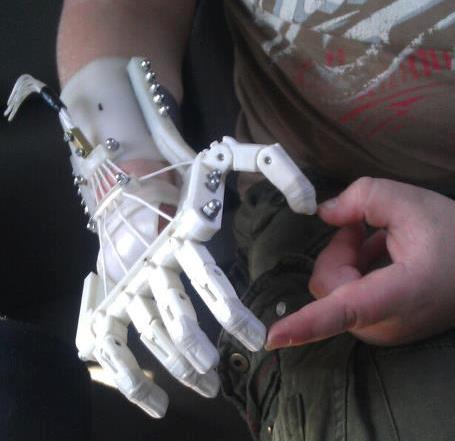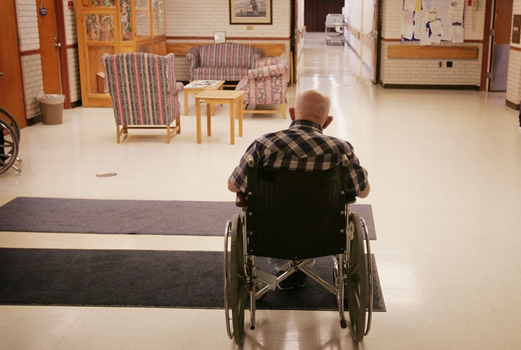 Leon McCarthy of Marblehead, Massachusetts, was born without fingers on one of his hands. When Leon was 10, his father Paul learned about the Robohand and purchased a 3-D printer to build one for his son.
Leon McCarthy of Marblehead, Massachusetts, was born without fingers on one of his hands. When Leon was 10, his father Paul learned about the Robohand and purchased a 3-D printer to build one for his son.
Although the hand reportedly costs $500 to make, the printer required currently sells for $2,399. Even so, the Robohand is far less expensive than available finger prosthetics. Many of the Robohand’s parts can be reused when new fittings are printed as children grow. Though it not be as functional as some of the much more expensive creations available, people buying their own prosthetics are willing to trade some functionality for the Robohand’s lower cost.
Would Robohand be covered by Medicaid and Medicare? Probably not.
Medicare and Medicaid require a prescription to purchase durable medical equipment like hand prostheses. Leon did not have a prescription. He probably could not have gotten one since the Robohand is not an FDA approved medical device. His father obviously does not meet Medicare requirements for suppliers of custom fabricated and fitted prosthetic devices.
The next time someone argues that deregulation will do nothing to reduce health care costs, keep in mind Medicare and Medicaid durable medical equipment regulations, regulations that both raise costs and act as a competitive deterrent to people who might have ideas for products like the Robohand.
 New regulations threaten to hamstring a Medicare Part D program that is working very well.
New regulations threaten to hamstring a Medicare Part D program that is working very well.








